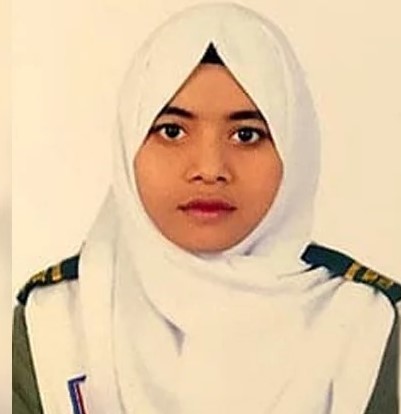In a quiet corner of Uttara, inside a small-rented flat behind Bangladesh Medical College, the sound of laughter and dreams was replaced by silence. On the shelf in one room, untouched science books lie neatly stacked, just as 15-year-old Naima Sultana had left them — their pages now heavy with the weight of a dream never lived.
Naima, a bright, determined Class 10 student at Milestone School and College, wanted to become a doctor. She loved biology, helped tutor her younger siblings, and often told her mother, “One day I’ll wear the white coat and make you proud.”
But on July 19, 2024, her dream was shattered by a bullet — not in a protest she joined, but as she stood on her balcony, curious and concerned, watching a crowd gather below.
“There was shouting outside, tear gas. She just wanted to see what was happening,” said Aynun Nahar, her mother, her voice breaking. “The next second, she collapsed. There was blood… and I couldn’t save her.”
Naima was shot in the head during a police crackdown in Uttara, amid nationwide protests against discrimination and injustice.
On that fateful morning, Naima had helped her younger brother get ready for school. She had laughed with her sister, Taspia, who also dreams of studying science. By noon, the world she knew was gone.
“I was next to her just minutes before,” said Taspia, holding back tears. “Now every time I look at her books, I feel like a part of me is missing.”
Their youngest brother, Abdur Rahman, only 7 years old, hasn’t spoken much since. He had watched it all happen.
Their father, Golam Mostafa, a village pharmacist, now shuttles between grief and disbelief. He had left the hills of Rangpur years ago to give his children a better future in the capital. Now, the family sits in a dimly lit room, unable to afford legal help or justice. “We leave it to Allah,” Aynun said simply. “We have no one here.”
Journalist Abdullah Al Mahmud, who lives in the same building, remembers the chaos of that day vividly. “It felt like a war zone. I heard the gunshots, then I saw her fall. I carried her to the hospital — there was blood everywhere,” he said.
Naima hadn’t just been a bystander in this moment in history. She had made protest posters. She had convinced classmates to speak out, to care, to hope. She believed that young people could change things.
“She was so brave, always,” her mother said, clutching one of Naima’s old drawings — a sketch of a girl raising her hand, demanding justice.
Now, Naima’s voice is gone. But her memory lives in every page of her notebooks, in every tear her siblings shed, and in the hearts of thousands of students who still march, still shout her name, still ask: Why her?
She wanted to heal the world. But the world didn’t let her live long enough to try.


